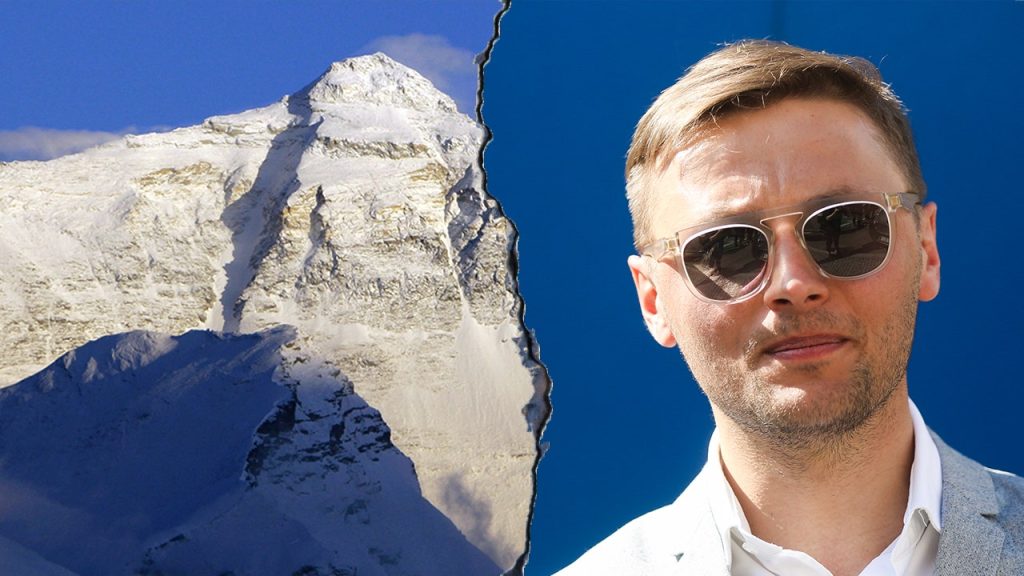Polish Mountaineer Makes History with Unprecedented Everest Ski Descent
In a breathtaking feat that has redefined the boundaries of human endurance and alpine achievement, 37-year-old Polish mountaineer Andrzej Bargiel has etched his name into the annals of exploration history. On September 22, Bargiel became the first person ever to ski down Mount Everest without supplemental oxygen, an accomplishment that mountaineering experts are calling revolutionary. “I am on top of the highest mountain in the world, and I’m going to descend it on skis,” Bargiel declared in an Instagram video moments before embarking on his historic descent from the 29,032-foot summit. The simplicity of his words belied the extraordinary challenge he was about to undertake—one that had defeated numerous previous attempts by elite athletes over several decades.
What makes Bargiel’s achievement particularly remarkable is his decision to forego supplemental oxygen—the life-sustaining equipment considered essential by virtually all climbers who venture into Everest’s notorious “death zone” above 8,000 meters. In this rarified atmosphere, where oxygen levels are critically low, human survival becomes a race against time as the body rapidly deteriorates. Bargiel spent nearly 16 hours in these perilous conditions during his descent, pushing the known limits of human physiology. His journey unfolded in two segments, with a strategic overnight stop at Camp II before navigating the treacherous Khumbu Icefall the following morning. This methodical approach, combined with drone assistance piloted by his brother Bartek, allowed him to safely complete what many had deemed impossible.
The historical significance of Bargiel’s achievement cannot be overstated. While Slovenian mountaineer Davorin Karnicar made history in 2000 as the first person to ski from Everest’s summit to Base Camp, he relied on bottled oxygen throughout his descent. For decades, the oxygen-free ski descent has represented something of a holy grail in extreme mountaineering—a challenge so formidable that many experts questioned whether it was humanly possible. “This was extremely challenging, and no one had done it before,” confirmed Chhang Dawa Sherpa of Seven Summit Treks, the Nepal-based outfitter that managed Bargiel’s expedition. When the Polish athlete finally reached Base Camp, he was honored with a khada—a ceremonial Buddhist scarf—in recognition of his unprecedented accomplishment.
Bargiel’s journey to this historic moment reflects the persistence characteristic of pioneering adventurers. This wasn’t his first attempt at skiing Everest without supplemental oxygen; he had previously tried in both 2019 and 2022, only to be thwarted by unstable ice conditions and dangerous high winds. These setbacks, however, provided valuable experience that ultimately contributed to his successful third attempt. The mountaineer was already renowned in extreme sports circles before this achievement, having made history in 2018 as the first person ever to ski down K2—the world’s second-highest peak and one considered technically more difficult than Everest. That earlier accomplishment, dedicated to the centenary of Poland regaining its independence, demonstrated Bargiel’s exceptional skill set and his ability to meticulously plan complex high-altitude expeditions.
The global response to Bargiel’s achievement has been enthusiastic, with Polish Prime Minister Donald Tusk leading the celebrations. “Sky is the limit? Not for Poles!” Tusk proclaimed on social media, highlighting how the mountaineer’s accomplishment has become a source of national pride. Beyond patriotic sentiment, the broader mountaineering community has recognized this descent as a watershed moment that expands the understanding of human capability in extreme environments. By successfully completing what many considered impossible, Bargiel has effectively rewritten the rulebook for high-altitude skiing and opened new possibilities for future adventurers. His achievement stands as testimony to the combination of careful preparation, physical conditioning, mental fortitude, and strategic decision-making required for success in the world’s most challenging environments.
In the context of Everest’s storied history, Bargiel’s achievement represents the latest chapter in humanity’s evolving relationship with the world’s highest peak. From Edmund Hillary and Tenzing Norgay’s first ascent in 1953 to Reinhold Messner’s oxygen-free summit in 1978, each landmark achievement has pushed forward our understanding of what’s possible in the most extreme places on Earth. Bargiel’s descent now stands alongside these historic firsts. As climate change continues to transform the Himalayan environment and technological advancements create new possibilities, Bargiel’s accomplishment serves as both inspiration and benchmark for future adventurers. Whatever challenges come next in the world of extreme mountaineering, this Polish athlete has demonstrated that with the right combination of skill, planning, and determination, even the seemingly impossible barriers can be overcome.


